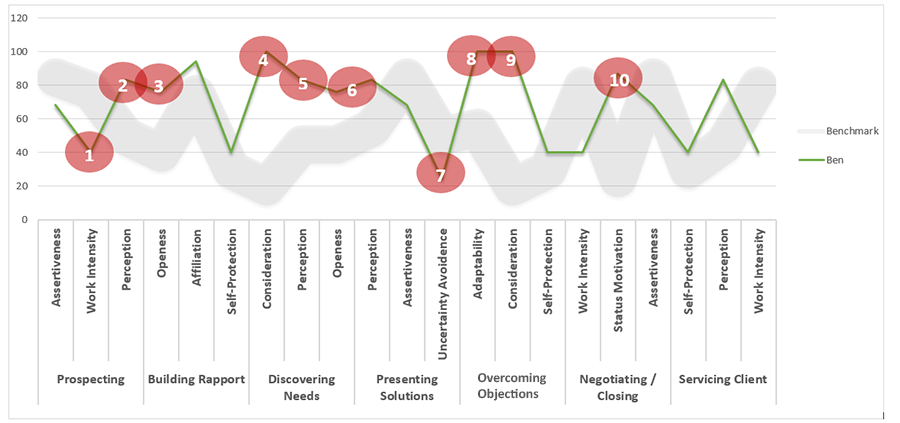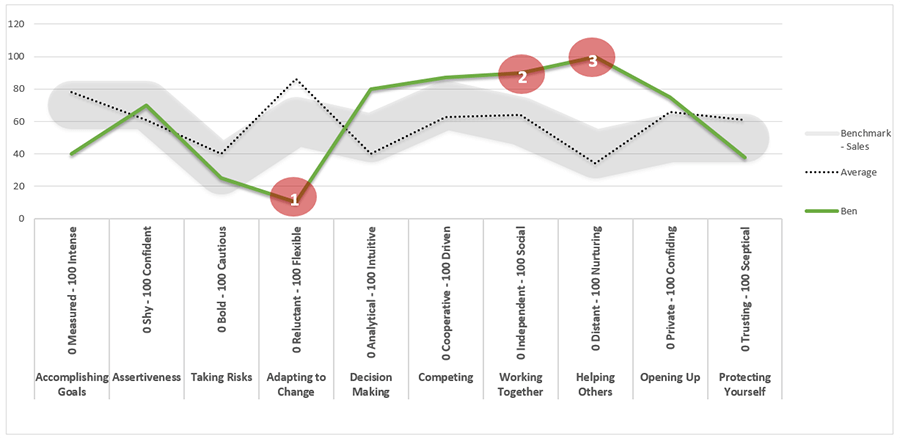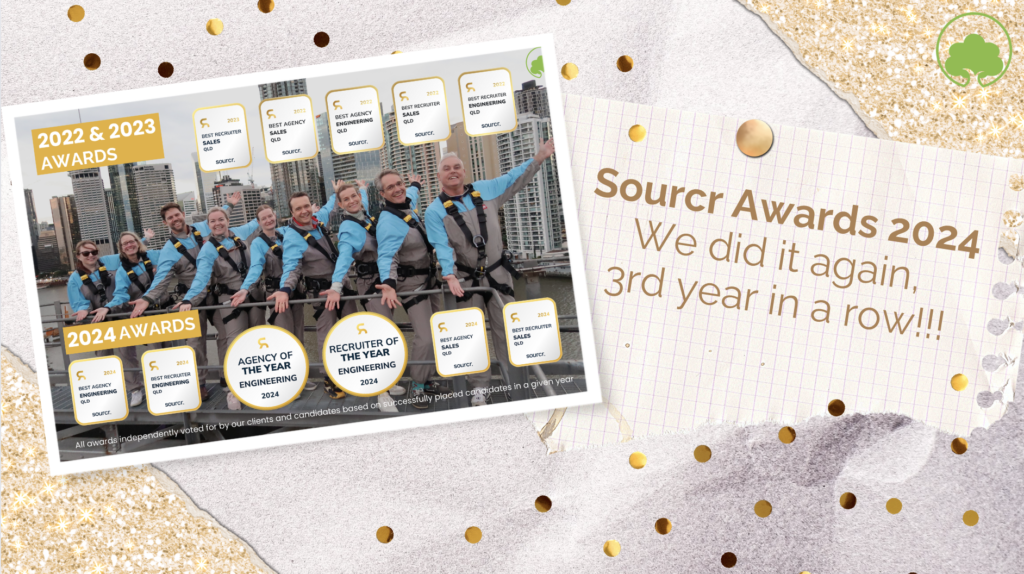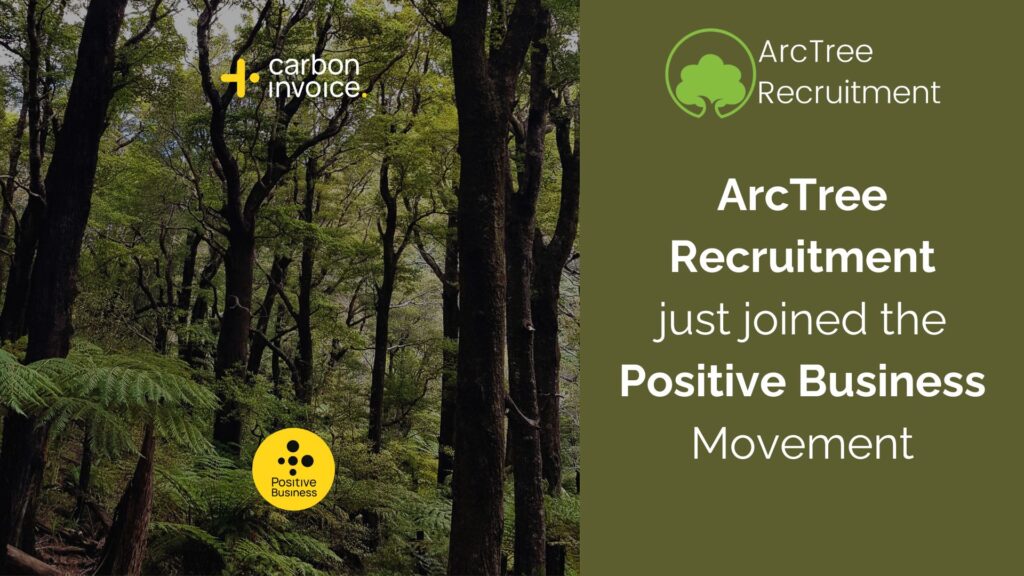This is part 2 in a 2 part series. You can check out part 1 here.
 By Alan Chambers, ArcTree Managing Director
By Alan Chambers, ArcTree Managing Director
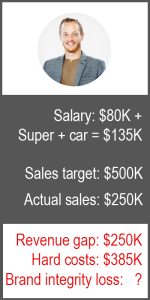 Last week, I talked about Ben, the salesperson you hired because he had the right background, skills and qualifications, and he interviewed brilliantly.
Last week, I talked about Ben, the salesperson you hired because he had the right background, skills and qualifications, and he interviewed brilliantly.
After twelve months, however, Ben is one of your lowest earning salespeople. He’s bringing in a few customers, but continually struggling to meet his targets.
You’re faced with a serious and very real decision: do you invest money in training Ben to help him acquire the skills he needs to be successful? If you’re going to train him, how do you know what training he actually needs to be successful?
Or, do you let him go and go back to the drawing board, hoping you’ve learned from your mistakes and will hire someone better next time around?
To really accelerate our hiring processes and make sure we know what we’re getting before it’s too late, we apply predictive analytics to the recruitment process. And then – this is the secret weapon bit – while we use a structured interview for the most part, we also make sure we address any potential gaps or problem areas in the interview.
Data-driven interviews give you deeper insights
Had we completed an evaluation of Ben before the interview, this is what we could have seen:
And these are just some of the conclusions we would have come to, based on how Ben’s profile matched the benchmark of our top performers, and the interview techniques you would use to get the real picture of Ben:
Insight: Ben may struggle to prospect (1) consistently. As such, you will need to break tasks down in to smaller groups and consistently coach him around the importance of “doing the numbers”.
Action: Ask Ben for examples of situations in which he has had to work hard consistently over a period of time, before achieving a desired outcome.
Insight: Due to his high levels of perception (2) and openness (3), he may struggle with qualifying prospects adequately whilst building rapport and as such waste a lot of time with unqualified prospects.
Action: Have you seen examples of him over-answering questions during the interview process so far?
Insight: Ben will struggle to adequately uncover actual customer needs by not effectively questioning the customer around their needs (consideration (4) and perception (5)).
Action: Has Ben asked enough questions about the role that he is applying for and does he have a real level of expectations? Question him on his understanding of the role and associated KPIs.
Insight: Ben will at times assume that he knows enough and start to present too soon (openness (6) and uncertainty avoidance (7)).
Action: Ask more complicated, long-winded questions and see if he interrupts you to answer the question.
Insight: Ben will at times over-present, not realising that the customer has already bought (adaptability (8) and consideration (9)).
Action: Change your body language halfway through him answering a question and see if he pauses and checks if you are happy with where he is going with his response.
Insight: Due to the above mentioned Ben will often not be able to handle objections adequately and may even become defensive, taking objections personally, rather than seeing it as part of the sales process (status motivation (10)).
Action: Ask for previous examples of finding win-win solutions in his personal life. Challenge him on his response to check for signs of defensiveness.
This level of insight goes below the waterline and gets to the heart of who Ben is and the attributes that will drive him to succeed or fail at the job. And this is only the first level below that line. If we delve even deeper, we can look at his leadership propensities and see that he may be more suited for jobs other than sales.
Insight: Ben will struggle to adapt to constant change (adapting to change (1)) and as such may be better suited to an operational role as opposed to sales.
Action: Has Ben worked in sales previously? If so, ask for examples of where he has had to adjust to product, territory or team changes.
Insight: Due to his highly social nature (working together (2)), Ben may struggle when asked to complete tasks on his own. He may be well suited to an office-based position, as opposed to traveling by himself extensively and seeing clients of his own.
Action: Ask for examples of previous achievements to get an indication if it has mostly been as part of a group.
Insight: Ben may at times focus too much on helping others (3), to the detriment of achieving his own goals and targets.
Action: Ask for examples of coaching others despite being extremely busy himself and check for signs of neglecting his work.
Data-driven interviews will give you the competitive edge
Would you have hired Ben if you’d known all of this beforehand? Maybe, but probably not in a sales role. Having this data about Ben up-front, before you’ve made a hire, gives you incredibly powerful insights about him that would be difficult to get in any other way.
It gives you the confidence of knowing that you have the very best information about a candidate before you make a critical decision. And in these competitive times, why would you not rely on all of the data you can get about how someone will perform in your business?
Greta Roberts, CEO of Talent Analytics, puts it nicely:
“Today’s competitive advantage lies in an employer’s data and the way they’re able to exploit that data for the advantage of their stockholders and their employees.
If employers want to innovate, and lead, and not be left behind, they need to commit to competing on talent analytics. Today. This year. Not next year.”
Are you hiring someone right now? See for yourself how data-driven interviews can give you invaluable insight into your candidates and prevent expensive hiring mistakes with 2 free candidate profiles.


